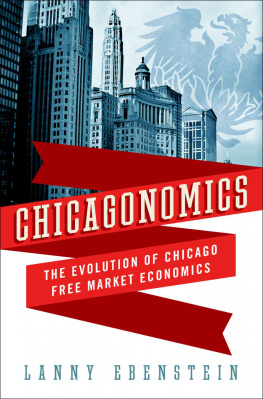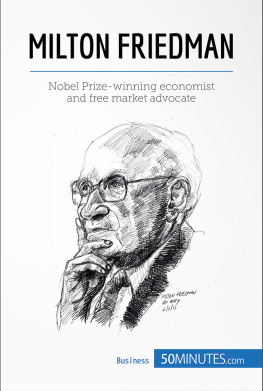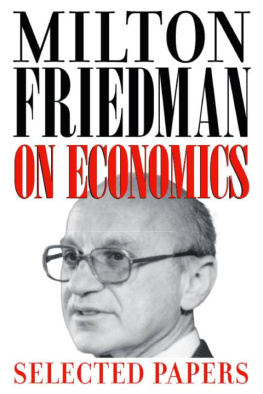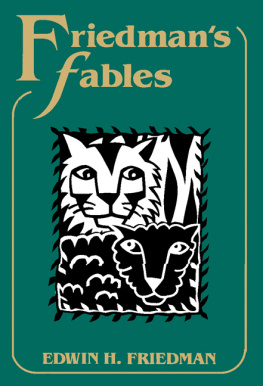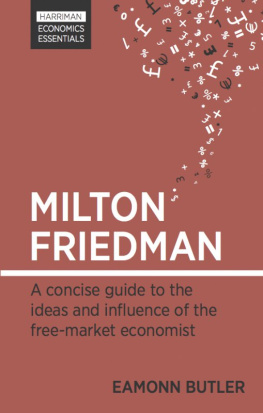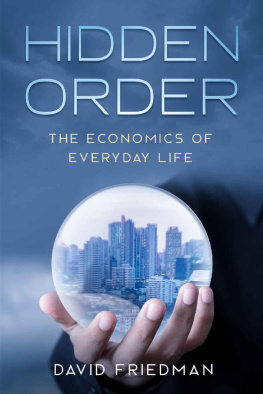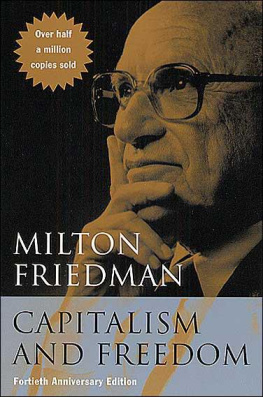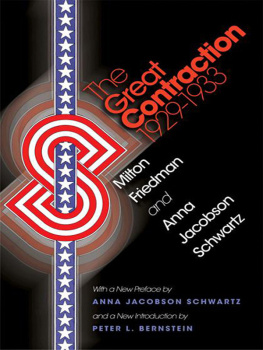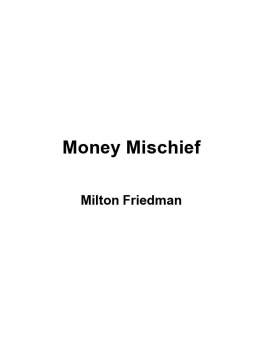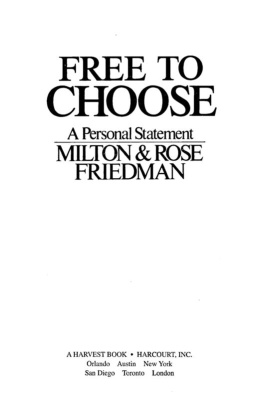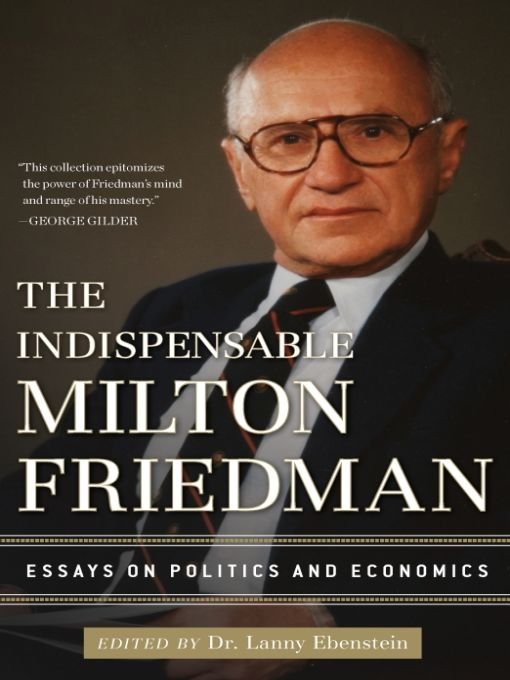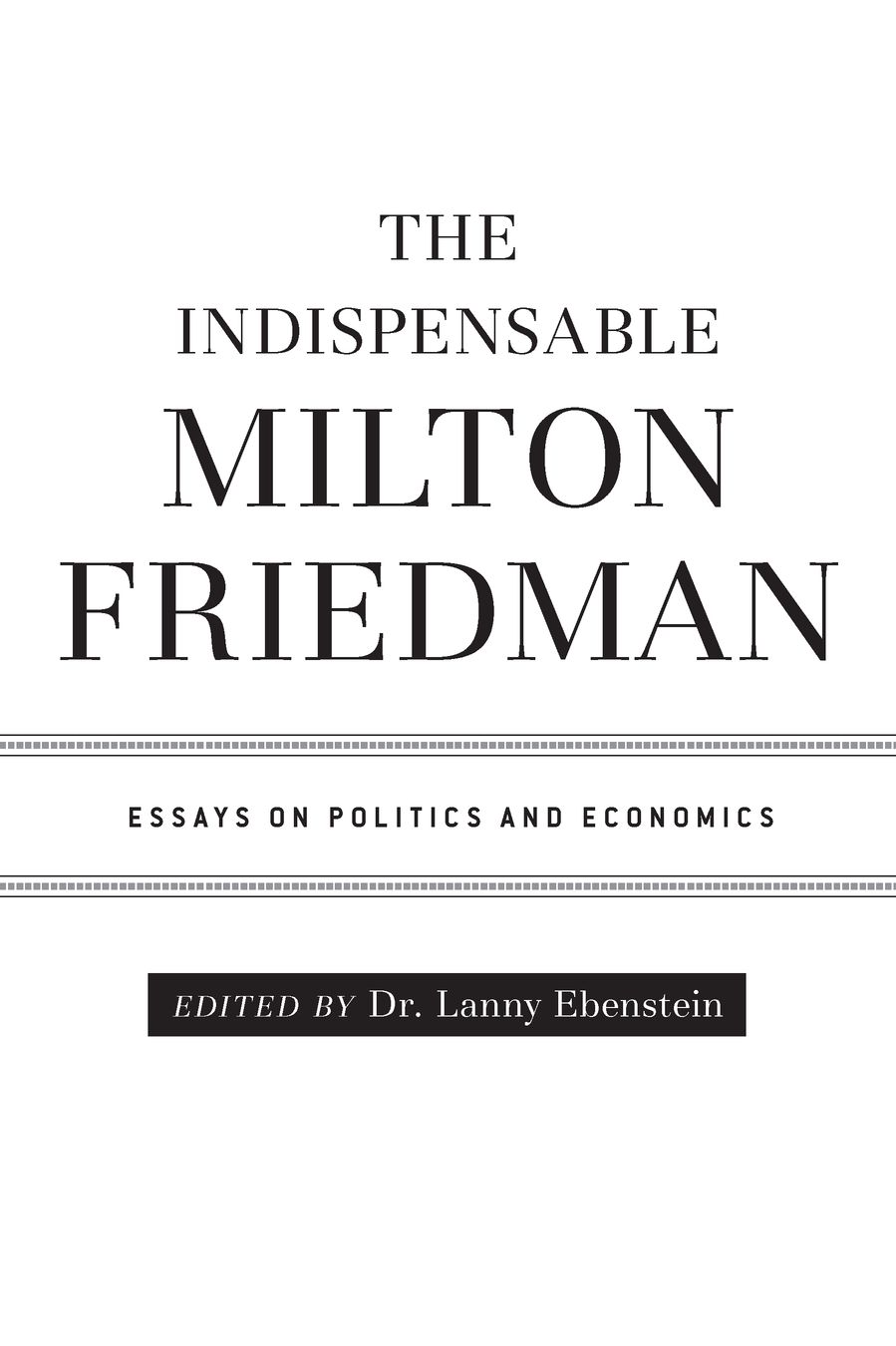Table of Contents
PRAISE FOR
THE INDISPENSABLE MILTON FRIEDMAN
Milton Friedman was the most authoritative exponent of the libertarian tradition in economics. He will be remembered as long as the subject endures, and this collection epitomizes the power of his mind and range of his mastery.
George Gilder,author of Wealth and Poverty
Milton Friedman was one of the most important scholars of the 20th century.... He perfected the art of making economics understandable to the ordinary, untrained individual. Thats the true mark of a teacher.
Walter E. Williams,John M. Olin Distinguished Professor of Economics,
George Mason University
In addition to being a great innovator in economic thought, Milton, assisted by his wife Rose, helped to create a warm fellowship for young new faculty.... Milton, along with Ted Schultz, George Stigler, Harry Johnson, Al Harberger, and Al Reese, created The Chicago School.
Robert Fogel,Nobel Laureate, Economic Sciences
Economists can succeed Milton Friedman, but nobody can replace him. As this collection of rare but brilliant essays confirms, he was one of a kind, and is greatly missed.
Mark Skousen,Editor, Forecasts & Strategies
This volume of essays from the corpus of Milton Friedmans work is not only welcome in light of the centennial of this brilliant intellectuals birth, but will clear the air of so many prevalent economic myths that continue to haunt us today.
Fr. Robert A. Sirico,author of Defending the Free Market,
President, Acton Institute
Milton Friedman was not only mentor to me but to young people all over the world. Together with Rose, his wife and collaborator of 68 years, they wrote many influential books dealing with the relationship between capitalism and freedom. Their last book, Two Lucky People, impacted the lives of so many. But, we are the lucky people to have known them personally. This collection of essays keeps the vision of this great man and woman alive. They were the quintessential team.
Sally Pipes,President and CEO, Pacific Research Institute
Keynes was wrong, and Friedman was right: political freedom and economic liberty are necessary allies in the expression of free minds and free markets, and the tyranny of control will always hamper prosperity. This extraordinary collection of essays illustrates the best of the Nobel laureates thoughts on how economics affects the world we live in.
David Nott,President, Reason Foundation
Milton Friedman was probably the most important advocate of individual freedom in the United States in the second half of the 20th century. In particular, he was that rare individual: both a world-class scholar and a world-class communicator. He won a Nobel Prize for studies that revolutionized the science of economics. But the essays in this book are clear and accessible to any newspaper reader. They are a good sampling of the work of a man who said, Our central theme in public advocacy has been the promotion of human freedom.
David Boaz,Executive Vice President, Cato Institute
To Art Rupe
L.E.
INTRODUCTION
Milton Friedman would have turned one hundred years old on July 31, 2012. The son of Hungarian Jewish emigrants to the United States, he had both an immigrants faith in the future of this country and an impressive intellectual understanding that Americas future prosperity and freedom depended on her continued respect for private property and free enterprise. He believed the lessons of economics, history, and politics all showed that where private property was protected and free markets were allowed to flourish, prosperity and freedom followed.
Friedman received the Nobel Prize in Economic Sciences in 1976, and the ideas he put forward helped to guide policy-making in capitals across the globe. Particularly in the area of inflation, his consistent admonition that inflation is always and everywhere a monetary phenomenon has influenced the theory and practice of monetary policy for decades. But his influence in advancing free market policy initiatives was broad; as Daniel Patrick Moynihan once remarked: If you were to ask me to name the most creative social-political thinker of our age I would not hesitate to say Milton Friedman.
Among the issues that Friedman championed were floating international exchange rates, reducing increases in money supply to control inflation, an all-volunteer army, school vouchers, privatization of many government functions, a greatly reduced role for government, denationalization, lower taxes, a negative income tax, and drug legalization. He was perhaps most effective as a teacher.
In a 1996 interview, he commented that the greatest problem facing our country is the breaking down into two classes, those who have and those who have not.... We really cannot remain a democratic, open society that is divided into two classes. In the long run, thats the greatest single danger. And the only way I see to resolve that problem is to improve the quality of education.
The essays collected here are in two broad areaspolitics and economicsand they are distinguished by several factors. For the most part, they have not been republished before, and some of them were originally published in journals with very small circulations. This is the first comprehensive collection of essays by Milton Friedman since his death in 2006, and these essays span his career. The earliest essay in this collection was originally published in 1950, the last a few months before he died. They cover the highlights of his career as a public intellectual, from defending the freedom of individuals to control their own destinies (Liberalism, Old Style, 1955), to showing how the first step in fixing health care is realizing that nobody spends somebody elses money as wisely or as frugally as he spends his own (How to Cure Health Care, 2001); from Friedmans most important lecture on monetary policy (The Counter-Revolution in Monetary Theory, 1970), to his assessment that John Maynard Keynes was truly a remarkable scientist, even if, to use the words that William Stanley Jevons applied to an earlier brilliant economist, David Ricardo, he shunted the car of economics on to a wrong line for some decades (The Keynes Centenary, 1983).
I was privileged to know Milton Friedman as a source and subject for projects of mine. He had a terrific sense of humor, an unfailing memory, and a brilliantly insightful mind. I remember well the first time I interviewed him. I asked whether he minded if I taped the conversation. He responded: What I say to one person, I say to everyone. I never say anything off the record.
A biographer of John Locke commented that Locke was so great that his biographer could not measure his greatness. It is hoped that the essays that follow will give the reader some measure of another great man, the Nobel Prize Laureate Milton Friedman.
NOTES
Steven F. Hayward, The Age of Reagan (New York: Random House, 2001), p. 524.
Michael Albert, Parecon: Life After Capitalism (London: Verso, 2003), p. 77.
Milton Friedman, correspondence with Lanny Ebenstein, June 1, 2005.


